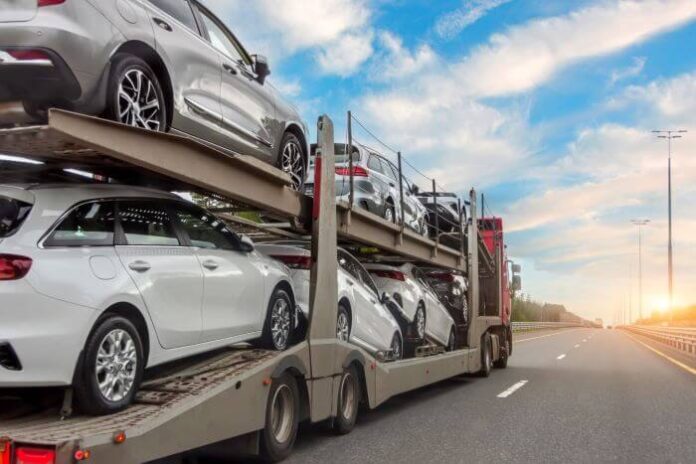Car trailers have become crucial to the automotive industry, enabling efficient and safe vehicle transportation. They evolved from a simple traditional crane system to innovative techniques for towing vehicles. Their design, materials, and technology have advanced to cater to the diverse needs of modern motorists.
As the production of cars increased, the demand for trailers soared. Hence, there has been an increase in companies manufacturing car trailers. Stronger materials like high-strength steel have allowed for more durable car trailers.
Hydraulic brakes and weight distribution systems enhance towing safety and ease. Slide-out ramps and adjustable tie-down systems made loading and unloading vehicles easier. Car trailers have become more sophisticated over time. Each configuration meets different transportation needs.
Aluminum and composite panels are now commonly used in trailers, reducing weight while maintaining strength. New trailer suspension systems and braking technologies improve ride quality and towing safety. Here’s how to choose the right car trailer for your business needs:
1. Assess Your Needs
Selecting the ideal car trailer for your business is a pivotal decision that can significantly impact your operation’s efficiency and cost-effectiveness. To choose the right car trailer, evaluate your specific business requirements. Consider the types of automobiles you’ll be transporting. What are the vehicles’ dimensions, weight, and quantity?
After fully understanding your requirements, you should examine various trailer types to find the one most suitable for your business.
- Flatbed Trailer: Flatbed trailers are versatile. They’re ideal for hauling and transporting cars, equipment, or other cargo.
- Enclosed Trailer: Enclosed trailers are perfect for protecting your vehicles from weather, road debris, and theft. They provide a safe and secure environment for your valuable cargo.
- Tilt Trailer: Tilt trailers are another option for businesses that prioritize efficiency in loading and unloading. They make the process more efficient, resulting in faster and more convenient outcomes.
Assessing your needs and preferences can help you make an informed decision.
2. Determine Capacity, Size, And Material
After you’ve determined the type of trailer that suits your business needs, the next step is to figure out the trailer’s capacity, size, and material. Considering these factors is crucial to ensure safe and efficient transport.
Remember these suggestions:
- Evaluate the weight capacity and the trailer’s size. Check if the trailer can support the total weight of the vehicles you plan to transport. Going over the weight limit can cause accidents and expensive damage.
- Selecting the appropriate size is crucial. Choosing a trailer that can accommodate your largest vehicle is best.
- Consider the possibility of expanding the business. Do you anticipate a need to transport larger vehicles in the future?
Planning can help you avoid the inconvenience of having to buy a new trailer in the future.
3. Evaluate Braking, Tires, And Suspension
Prioritizing the safety of your vehicles is essential during transportation. Hence, it helps to assess the trailer’s braking system, tires, and suspension. Inspect the trailer’s braking system if you plan to haul heavy loads. Check if the braking system is functioning properly and meets all safety regulations.
Meanwhile, it helps to choose tires suitable for the road conditions you’ll be driving on. Your tire size, tread pattern, and load-carrying capacity should match your transportation requirements. Regularly maintaining your tires helps ensure a smoother ride and decreases the chances of experiencing blowouts or accidents.
Also, pay attention to the trailer’s suspension. The suspension system keeps the vehicle stable and ensures a smooth ride. The vehicle should be able to support the weight of your cargo without causing too much bouncing or swaying while being transported.
4. Choose The Axle Configuration
Choosing the appropriate axle configuration is crucial because it affects the trailer’s stability and weight capacity. A single axle has only one wheel on each side. Single-axle trailers are designed for lighter loads and shorter distances.
On the other hand, a tandem axle is where two axles are positioned close together on a vehicle. Tandem axle trailers can provide more stability and can carry more weight. The extra axle helps distribute weight evenly, reducing the chance of overloading while improving towing performance.
The decision depends on your business’s needs. Evaluate the distance you’ll be traveling, the weight of your cargo, and the type of terrain you’ll encounter. A tandem-axle trailer offers reassurance when transporting heavy loads across different types of terrain.
5. Consider Your Budget
Consider technical aspects and budget when choosing a trailer. Your available funds will affect the trailer type, size, and features you can buy.
Here are some tips to help you:
- Initial Expenses: You can compare the prices of various trailer models that meet your requirements. The prices can vary depending on size, material, and additional features. Stick to your budget to avoid spending more than you can afford.
- Operating Costs: Consider fuel efficiency, maintenance, and insurance costs.
- Resale Value: Consider the potential resale value of the trailer. Trailers made from durable materials tend to maintain their value well over time.
Investing in a car trailer for your business requires balancing between your requirements and budget.
Conclusion
Selecting the right car trailer for your business requires careful consideration of your specific needs and preferences. Remember that choosing the appropriate car trailer is a valuable investment. Having the appropriate trailer can significantly impact your business’s profitability.







